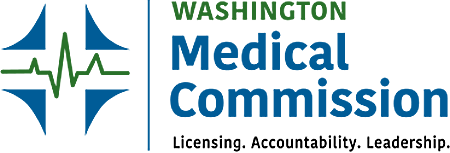Post-COVID-19 Conditions: Expanding Our Understanding of Long-term Sequelae of COVID-19
This webinar occurred on February 16, 2024 and will expire on February 17, 2025
Webinar Slides
Webinar Recording
CME Evaluation
In this webinar, Dr Chow will cover the terms and case definitions associated with Post-COVID-19 diagnoses, describe the clinical features and risk factors as well as explore the epidemiology and possible etiologies for this diverse group of conditions. The webinar will be recorded and continuing education is available for physicians (MDs, DOs and Physician Assistants (PA), medical assistants and nurses.
Educational Objectives
Upon completion of this educational activity, participants should be able to:
- Summarize the terms and case definitions associated with post-COVID-19 conditions
- Recognize the clinical features commonly associated with certain phenotypes of post-COVID-19 conditions
- Describe the known epidemiology and factors associated with the development of post-COVID-19 conditions
- Describe the possible etiologies and underlying pathophysiologic explanations for post-COVID-19 conditions
Target Audience
This activity is designed to educate commission members, practitioners, medical regulatory staff, and the public.
Speaker Biography
Eric J. Chow, MD, MS, MPH
Dr. Chow is the Chief of Communicable Disease Epidemiology and Immunization for Public Health – Seattle & King County and is a Clinical Assistant Professor in the Division of Allergy and Infectious Diseases and in the Department of Epidemiology. Dr. Chow received his MD and MPH from Eastern Virginia Medical School. He completed his residency training in combined internal medicine and pediatrics at Brown University/Rhode Island Hospital where he also completed a pediatric chief residency. From 2018-2020, he was an Epidemic Intelligence Service (EIS) Officer within the Influenza Division where he worked on division level priorities and on field investigations including influenza, measles, Ebola and SARS-CoV-2. He supported Public Health – Seattle & King County’s response to the long-term care facility COVID-19 outbreak and helped characterize the initial cases of multi-system inflammatory syndrome in children in the United States. He completed an adult infectious disease fellowship at the University of Washington. His peer reviewed publications and research interests focus on community respiratory virus epidemiology, extra-pulmonary manifestations of respiratory viruses and emerging infectious diseases.
Continuing Medical Education
Accreditation Statement
This activity has been planned and implemented in accordance with the accreditation requirements and policies of the Accreditation Council for Continuing Medical Education (ACCME) through the joint providership of the Federation of State Medical Boards, the Washington Medical Commission, and the Washington State Department of Health. The Federation of State Medical Boards is accredited by the ACCME to provide continuing medical education for physicians.
Credit Designation Statement
The Federation of State Medical Boards designates this live activity for a maximum of 1.0 AMA PRA Category 1 Credit™. Physicians should claim only the credit commensurate with the extent of their participation in the activity.
Course Director
Pamela Kohlmeier MD, JD, FACEP
Washington Medical Commission
Commercial Support
This learning activity is not funded by any commercial entity.
Disclosure Declaration
As an organization accredited by the ACCME, the Federation of State Medical Boards (FSMB) requires that the content of CME activities and related materials provide balance, independence, objectivity, and scientific rigor. All faculty, planners, and others in a position to control continuing medical education content participating in an accredited continuing education activity are required to disclose all financial relationships with ineligible companies. Ineligible companies are organizations whose primary business is producing, marketing, selling, re-selling, or distributing healthcare products used by or on patients. Faculty (authors, presenters, speakers and planners) are encouraged to provide a balanced view of therapeutic options by utilizing either generic names or other options available when utilizing trade names to ensure impartiality.
Faculty members are asked to disclose all financial relationships they have had in the past 24 months with ineligible companies regardless of the potential relevance of each relationship to the education and of the amount. The FSMB has implemented a mechanism to identify and resolve all conflicts of interest prior to the activity. The intent of this policy is to identify potential conflicts of interest so participants can form their own judgments with full disclosure of the facts. Participants will be asked to evaluate whether the speaker’s outside interests reflect a possible bias in the planning or presentation of the activity.
The speakers, course director, and planners have nothing to disclose.
Disclosure of Unlabeled Uses
This educational activity may contain discussion of published and/or investigational uses of agents that are not approved by the U.S. Food and Drug Administration. For additional information about approved uses, including approved indications, contraindications, and warnings, please refer to the prescribing information for each product, or consult the Physicians’ Desk Reference.
Faculty and Staff Disclosures
No speaker or persons in control of content reported intent to reference unlabeled/unapproved uses of drugs or products.



